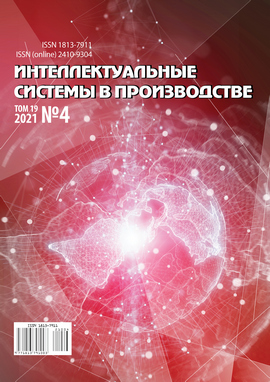Исследование танталовых объемно-пористых конденсаторов с использованием ускоренной методики оценки качества СТРЕСС-ТЕСТ
DOI:
https://doi.org/10.22213/2410-9304-2021-4-49-54Ключевые слова:
танталовые конденсаторы, методика испытаний, эквивалентное последовательное сопротивление, оксидный слой, дефектАннотация
В статье рассматривается вопрос о возможности проведения ускоренных испытаний по оценке качества танталовых объемно-пористых конденсаторов согласно разработанной методике СТРЕСС-ТЕСТ взамен устаревших методов, требующих затратных ресурсов для проведения испытаний, и не обеспечивают должную отбраковку конденсаторов (выявление дефектов оксидного слоя). Известно, что выращенный аморфный пентаоксид способен образовать равномерный слой на поверхности тантала, но вследствие различных факторов (из-за неровности поверхности, пористости, неравномерности распределения электролита во время процесса оксидирования и электрического контакта рейконоситель-анод) создается поверхность с «проблемными участками», «непроформовкой», или «слабым местом», отбраковка которых наиболее важна для современных танталовых конденсаторов. Проведение сравнительного анализа применения стандартного метода и методики СТРЕСС-ТЕСТ для ускоренной оценки качества танталовых объемно-пористых конденсаторов позволит доказать эффективность разработанной методики. Разработанная методика СТРЕСС-ТЕСТ основана на цикличном (10 циклов) приложении к конденсатору повышенного напряжения (соответствующего напряжению при формировании оксидного слоя на танталовом аноде) при продолжительности каждого цикла в течение 5 минут, что доказывается проведением расчета данного процесса на основе модели ускорения безотказности Журкова. Методика позволяет заблаговременно выявлять некачественные конденсаторы при дефектах в структуре оксидного слоя. Методика позволяет проводить оценку качества конденсаторов в ускоренные сроки, что подтверждается полученной регрессионной моделью эквивалентного последовательного сопротивления в сравнении с регрессионной моделью стандартного вида испытаний на длительную безотказность в течение 24 000 часов. Применение методики СТРЕСС-ТЕСТ для танталовых объемно пористых конденсаторов позволит сократить время проведения испытаний ориентировочно на два с половиной года.Библиографические ссылки
Горбачев И. П., Сашов А. А. Метод выявления внутренних дефектов танталовых конденсаторов для снижения количества отказов аппаратуры // Ракетно-космическое приборостроение и информационные системы. 2019. Т. 6, № 1. С. 94-101. DOI 10.30894/ issn2409-0239.2019.6.1.94.101.
Горбачев В., Кочемасов В., Хорев С. Оксидные конденсаторы // Компоненты и технологии. 2020. № 6 (227). С. 34-39.
Кузнецов П. Л., Ломаев Г. В., Кузнецова В. А. Исследование влияния характеристик технологического процесса изготовления на изменения эксплуатационных характеристик танталовых объемно-пористых конденсаторов во времени // Вестник Ижевского государственного технического университета. 2014. № 1. С. 11-15.
Кузнецова В. А., Муравьев В. В. Ускоренные испытания сохраняемости танталовых конденсаторов с использованием теплового метода // Вестник ИжГТУ имени М. Т. Калашникова. 2018. Т. 21, № 1. С. 82-88. DOI: 10.22213/2413-1172-2018-1-82-88.
Беляева Е. А., Муравьев В. В. Управление качеством танталовых конденсаторов на основе анализа дефектов, возникающих на этапах технологического процесса и обнаруживаемых при эксплуатации // Вестник ИжГТУ имени М. Т. Калашникова. 2018. Т. 21, № 1. С. 74-81. DOI: 10.22213/2413-1172-2018-1-74-81.
Получение пористых танталовых анодов для электролитических конденсаторов при помощи послойного поточечного электроимпульсного спекания / И. А. Елькин, К. С. Столбов, В. А. Волков, О. Б. Барышев, А. Н. Бельтюков, О. Ю. Гончаров, С. В. Рыбин, А. В. Степанов, А. А. Чулкина // Химическая физика и мезоскопия. 2020. Т. 22. № 4. С. 421-433. DOI 10.15350/17270529.2020.4.40.
Беляева Е. А., Муравьев В. В. Влияние пористости и режимов оксидирования анода на качество танталовых конденсаторов с жидким электролитом // Контроль. Диагностика. 2016. № 3. С. 62-70. DOI: 10.14489/td.2016.03.pp.062-070.
Барсуков В. К., Сибгатуллин Б. И. Контроль качества танталовых чип-конденсаторов с помощью испытаний импульсным током // Контроль. Диагностика. 2018. № 3. С. 58-63.
Предотвращение отказов танталовых чип-конденсаторов на этапе производства / С. В. Горелов, Е. С. Игнатенко, К. Н. Морев, В. И. Никулин // Научные проблемы транспорта Сибири и Дальнего Востока. 2016. № 3-4. С. 135-138.
Абдурахмонов С. У. Испытание различных бумажно-масляных конденсаторов // Современные научные исследования и инновации. 2020. № 2 (106). С. 8.
Федулаев Д. Е., Балакирев Е. Н. Контроль качества производства электролитических конденсаторов // News of Science and Education. 2018. Т. 10, № 2. С. 072-074.
Freeman Y. Tantalum and niobium based capacitors. Science, Technology and application. / Freeman Y. // Springer International Publishing AG2018. 2018. ISBN 978-3-319-67869-6, ISBN 978-3-319-678870-2 (e-book), DOI 10.1007/978-3-319-67870-2.
Рентюк В. Алюминиевые электролитические конденсаторы, или еще раз про надежность // Силовая электроника. 2018. Т. 3, № 72. С. 4-11.
Ежов В. Проблемы и перспективы развития отечественной пассивной электронной компонентной базы // Электроника: Наука, технология, бизнес. 2019. № 3. С. 44-49.
Кузнецов П. Л., Муравьев В. В. Контроль качества электролитических танталовых конденсаторов с использованием СТРЕСС-ТЕСТА // Приборы и методы измерений. 2015. № 1 С. 76-80.


